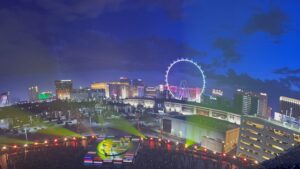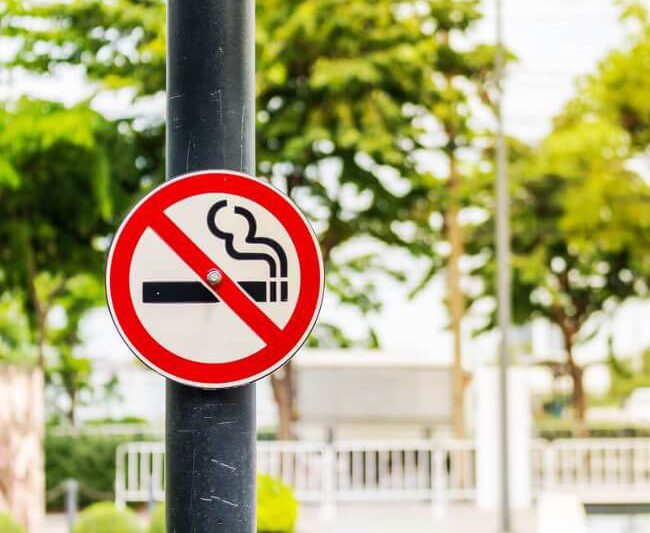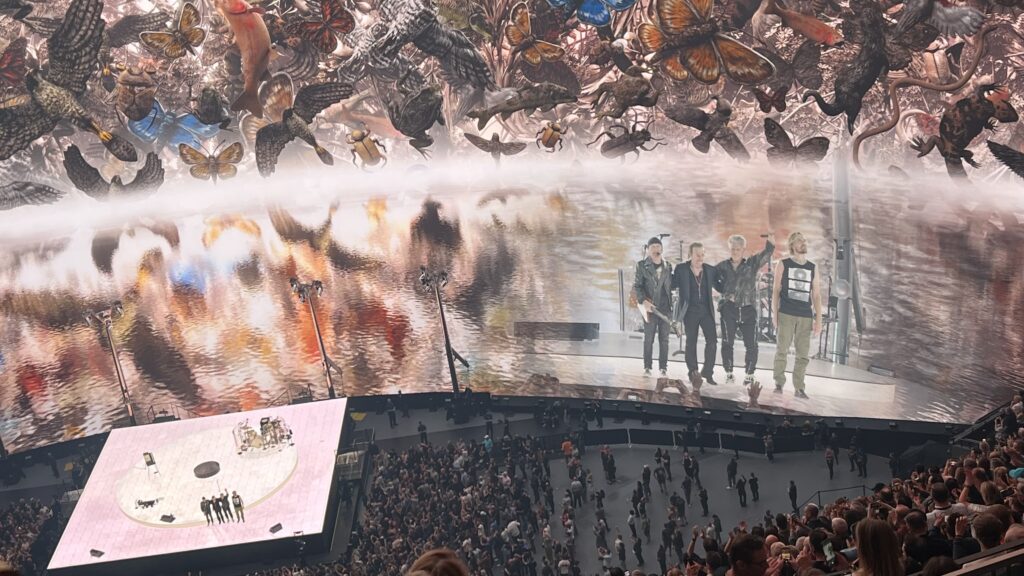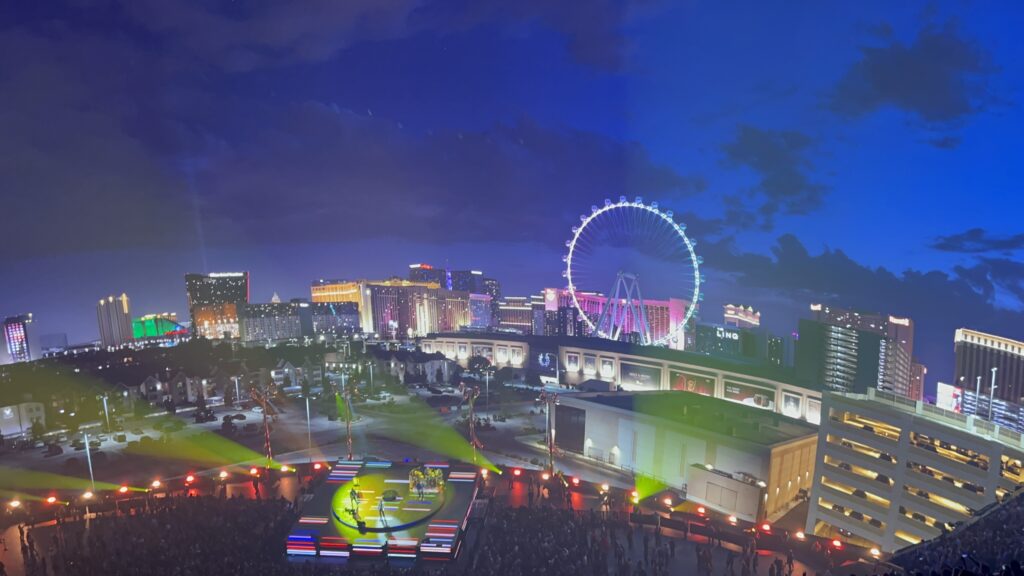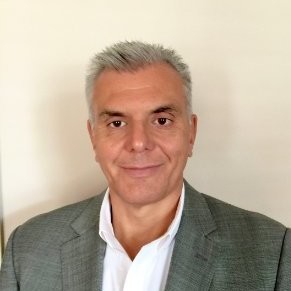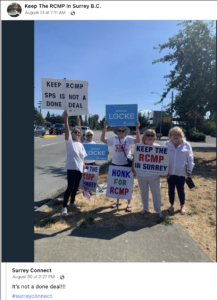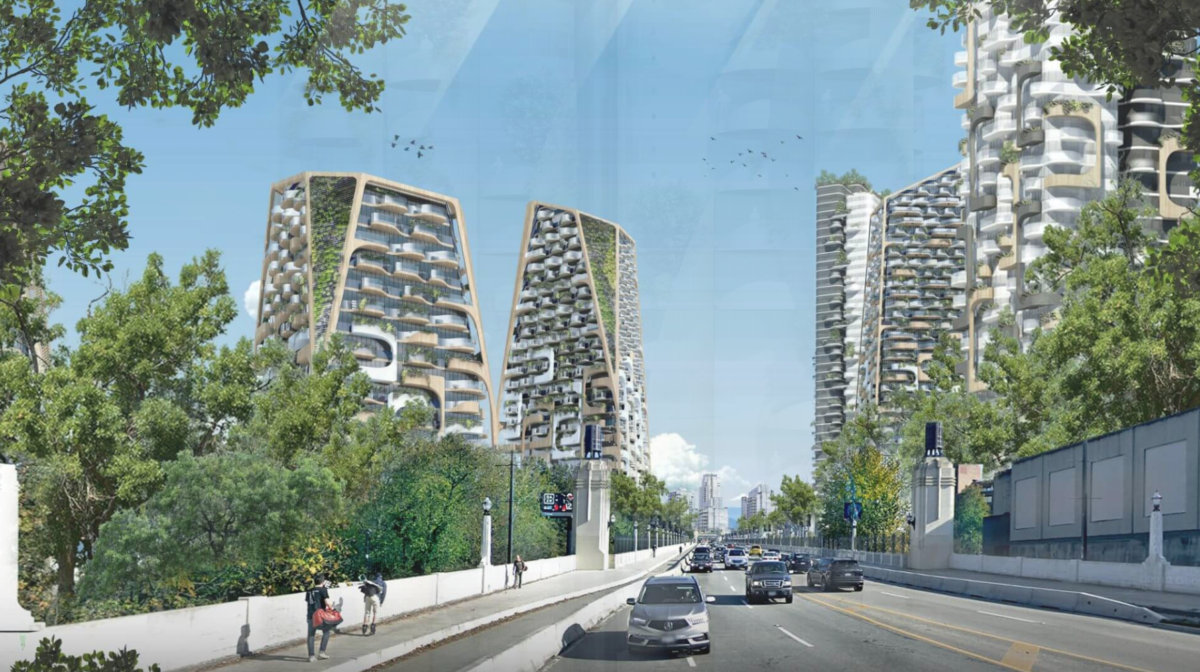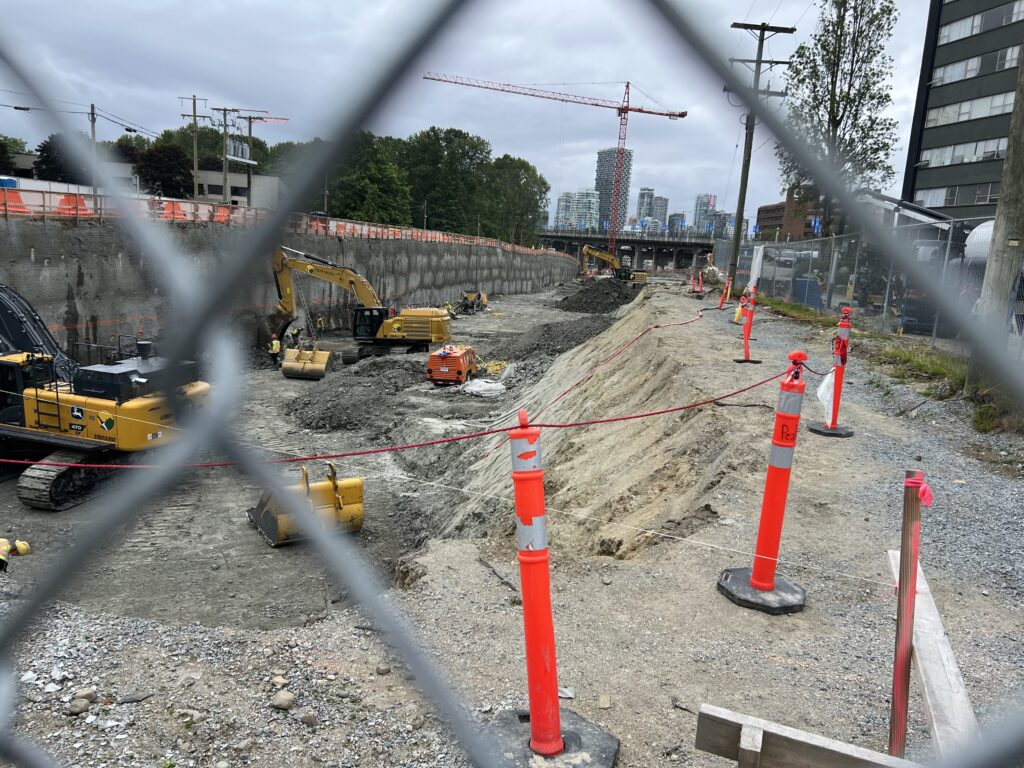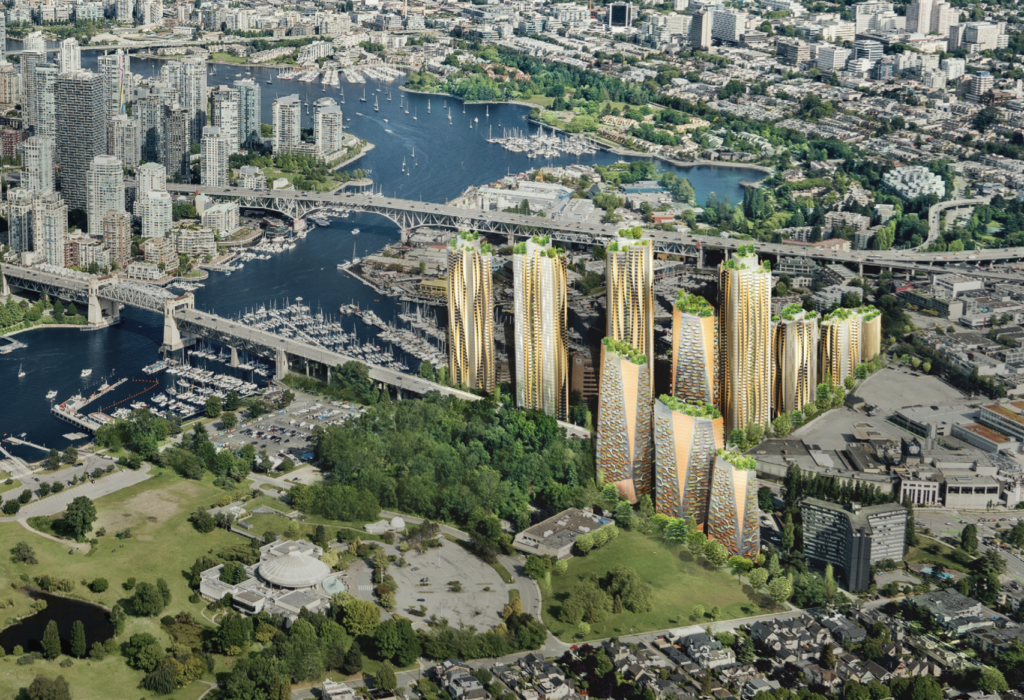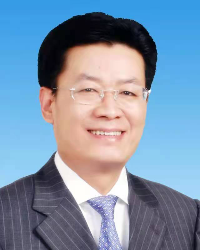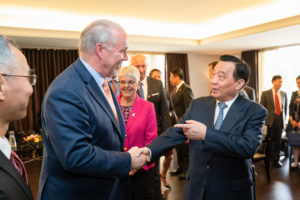Accused of underage sex, Tyabji-Sandana admits he never asked for girl’s age
Bob Mackin
The son of a former BC Liberal MLA admitted in B.C. Supreme Court on Oct. 10 that he never verified the age of the girl that he had sex with in September 2016.

Judi Tyabji (left) and Kasimir Tyabji-Sandana (Facebook)
Kasimir Tyabji-Sandana, son of former Okanagan East MLA Judi Tyabji, is accused of committing sexual interference of a person under 16 and invitation to sexual touching of a person under 16. If convicted, he could face a maximum 14 years in jail. He testified that he believed the girl he dated was 16-years-old.
“It seems like I didn’t directly ask for that,” the 35-year-old said under cross-examination before Justice Peter Edelmann and the 10-member jury.
Tyabji-Sandana said that he learned the girl’s true age was 15 when he was shown evidence disclosure at his lawyer’s office after he was charged in 2020. But, in court, a Crown prosecutor showed him a direct Facebook message in which the girl had earlier written: “I was 15, I had no life experience, I was so lost.”
He originally met the girl, who is now 22, when she volunteered to work in January 2016 on the sheep farm co-owned by Tyabji and her then-husband Gordon Wilson, the ex-Powell River MLA who led the BC Liberal Party from 1987 to 1993.
Tyabji-Sandana denied the alleged victim’s testimony that she told him she was 15 after they kissed for the first time in the summer of 2016. Had he known, he said he would have stopped, apologized and been ashamed. A month-and-a-half later, he looked up the age of consent law on a Justice Canada website, to confirm it was 16.
“You knew that you were kissing someone who you believed to be underage,” the Crown prosecutor said.
“At the time of that kiss, it sounds like I made a mistake there, for sure,” Tyabji-Sandana said.
He also told the court that he believed she had not previously had intercourse because she had told him so.
The relationship did not go beyond fall 2016. Tyabji-Sandana sought her out two years later and they met again for dinner in Gastown when she was studying at the B.C. Institute of Technology and he was seeking entry to the University of B.C. law school.
“We just talked about life, innocuous things, and at no point was there any mention of any concerns regarding the legality or illegality of our time together,” he said. “We barely talked about our relationship. We barely even talked about what had happened at all.”
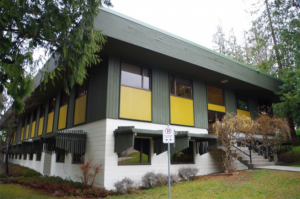
Powell River courthouse (Provincial Court of B.C.)
Tyabji-Sandana described it as a “very benign dinner,” but they did not see each other again.
While he testified that he knew she had a birthday sometime between the end of her volunteering on the farm and when they met again on Canada Day in 2016, he said he was unsure of her high school grade. Her June 2016 email to him said she had skipped Grade 9 English, completed Grade 10 English in fall 2015 and was planning to study Grade 11 English in fall 2016. Tyabji-Sandana agreed that a student entering Grade 10 would typically be 15-years-old. He also said he discussed giving the girl driving lessons because he understood she did not have a driver’s licence.
Wilson, Tyabji-Sandana’s stepfather, told the court that he reluctantly allowed two high school girls to volunteer on the sheep farm in order to achieve credit towards their Grade 12 graduation. He said they seemed “very self-assured, very assertive young women” and had “no doubt” they were in senior high school.
“My default is to say no, because there are rules in the province about young people working on farms, which I have to be mindful of because of liability,” Wilson told the court.
Under cross-examination, Wilson was asked why he did not demand government-issued identification to verify their ages before they began the taxing, potentially dangerous work.
“I’ve been a parent of five teenage kids. I know that, routinely, kids will embellish their age, and there’s a whole industry out there producing fake IDs, so they can go where they shouldn’t go and do what they shouldn’t do,” Wilson said. “What I’m more interested in is, what is their motivation?”
Crown and defence lawyers will present closing arguments Oct. 11 and the jury is expected to begin deliberations the next day.
Edelmann dismissed two jurors on Oct. 6 after they admitted they had conducted what he called “independent research” about the case.
Support theBreaker.news for as low as $2 a month on Patreon. Find out how. Click here.
Bob Mackin The son of a former BC








